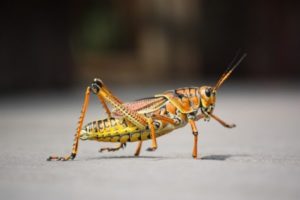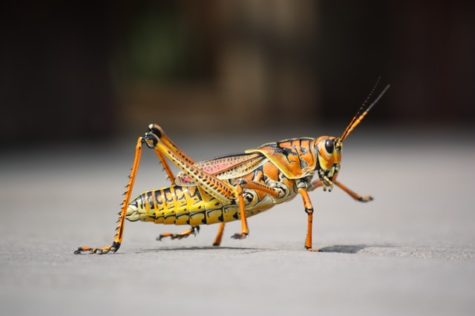NEW BRUNSWICK, N. J. — For most of the Western world, eating insects isn’t a common practice and mostly thought of as a survival tactic should one get stranded in the woods. However, a recent study shows that primates, including humans, could still get by on a diet of six-legged bugs — and thrive — thanks to the key nutrients found in insects.
In the past, nutritionists believed that many people’s reluctance to eat insects was beyond their personal or cultural reactions to the bugs themselves. It was, in fact, thought that humans and many primates lacked the stomach enzyme needed to break insects down and digest them.

But a study led by Kent State doctoral candidate Mareike Janiak found the right genes for digesting bugs in 34 primates, hinting that humans probably have a similar enzyme.
The specific stomach enzyme needed to digest chitin, the primary component of insects’ exoskeletons, is produced by a gene called CHIA. Janiak and her team found at least one copy of the gene in the primates they tested.
“As some primates evolved to be larger and more active during the day than at night, their diets shifted a bit to other foods like fruits and leaves,” explains Janiak in a university release. “Insects became less important and their digestive enzymes changed, but most living primates still have at least one working CHIA gene.”
How effectively humans can digest chitin is still being tested, but already 2 billion people in the world eat insects regularly as part of their diet, and many insects are noted sources of proteins, healthy fats, and other nutrients.
“Unfortunately, most of the human research so far has been done using Western culture participants rather than comparing people from various cultures that actually eat insects regularly,” says Janiak. “But for humans, even if we didn’t have an enzyme, the exoskeleton becomes a lot easier to chew and digest once the insect has been cooked.”
In the meantime, if you do find yourself stuck stranded in the outdoors, this latest study should knock out at least some of the hesitation you might have in partaking in roasted grasshopper for dinner. If anything, Janiak says you can compare them to some of the most popular food on the planet.
“It’s interesting that many people who like shrimp and lobster think insects are yucky. But shellfish are kind of like underwater insects,” she says.
The full study was published in the journal Molecular Biology and Evolution.

Sounds like a good idea.